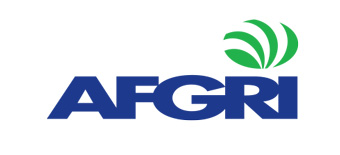Agritech Expo Zambia will take place from 12 to 14 April 2018 at the GART Research Centre in Chisamba. The expo returns to Zambia for the fifth time and promises new features, more country pavilions, and more free training opportunities.The event is expected to attract more than 22 000 visitors, with more than 270 local and international exhibitors, 3 500 large-scale farmers and 150 members of the media. The expo remains free to visitors that pre-register.
Country pavilions from France, Germany, Zimbabwe, Czech Republic and Finland have been confirmed.
“Thanks to the support of the farming community in Zambia, but also in the region, Agritech Expo Zambia has been established as a marketplace for regional and international industry professionals, young agripreneurs and farmers of all scales, to come together in 1 location to conduct exclusive agribusiness transactions while being educated on the latest global industry trends to advance into the next generation of food production,” says Emmanuelle Nicholls, Event Director.
The Zambia National Farmers’ Union (ZNFU) is the owner of the event and President Jervis Zimba says “it is our belief that Agritech Expo, which has become the biggest agricultural showpiece in Zambia, will continue unveiling new ideologies and technologies relevant to the growth of our farmers not only in Zambia, but also beyond, that will help lift the poor majority out of poverty; the push behind the creation of the expo. With this in mind, we are expecting an even bigger Agritech Expo in 2018.”
NEW FEATURES
Mowing and baling demonstrations
For the first time, Agritech Expo will be showcasing live mowing demonstrations. This new demo area is focusing on quality mechanisation for mowing purposes and will give farming professionals the opportunity to view this equipment in action.
Aquaculture showcase
Aquaculture is a growing market in Sub-Saharan Africa and the expo will be showcasing the regions’ most prominent players in this field.
Live planting demonstrations
These demonstrations will provide the opportunity for companies to practically demonstrate how products work.
Greenhouse showcase
A first-hand opportunity to see the effects and benefits of using a variety of seeds with fertilisers and pesticides to maximise yields.
Value added zone
Boosting commercial opportunities for farming operations by featuring the latest industry trends and solutions on ways to improve quality and enhance yields.
PLENTY TO LEARN, SEE AND DO
Machinery demonstrations
An exciting attraction and a great display of versatility and capability by leading machinery suppliers.
Construction park
Offers visitors a selection of quality construction equipment to suit their agricultural needs.
4×4 test track
Gives visitors the opportunity to test their skills or simply be driven around the track and experience the capability and manoeuvrability of high-end utility vehicles.
Crop trials
Visitors are able to view the yields of seeds from a variety of seed producers and respective agro-chemicals companies.
Energy park
Introduced in 2016 and offers innovative ways to get off the grid amidst the power crisis unfolding in the region.
International pavilions
Agritech has become an internationally acclaimed event, boasting over 39 countries being represented onsite year on year. In 2018, the expo expects to feature over 10 international country pavilions featuring products and solutions from global industry leaders.
Indoor expo
Showcases a variety of local and international agricultural suppliers looking to expand their footprint in Sub-Saharan Africa.
Irrigation zone
Displays a variety of irrigation systems and farming solutions, including centre pivot displays for commercial and small-scale farmers from leading industry suppliers.
Livestock zone
Incorporates various breeders who display their livestock services, species of livestock including goats, cows and sheep, as well as animal feeds and veterinary services.
Centre pivot display
Agritech Expo Zambia is the first agriculturally focused event in Africa to showcase a live centre pivot as part of the show.
AgriTeach workshops
This year the AgriTeach interactive training workshops are launched, presented by industry experts and focused on modernising small-scale farmers. AgriTeach provides access to market information, practical demonstrations and innovations from the latest financial loan models to new agricultural solutions.
Large-scale farmers seminars
Focusing on innovative solutions and initiatives to increase productivity under challenging market conditions.
SME zone
A cost-effective designed area for local based companies to participate in the event and to engage with farming professionals, without having to create a large display area.
VIP Business Lounge
Specifically geared for VIP farmers, government officials, policy makers and media officials to network and conduct meetings, directly with suppliers to the market and vendor companies.
INDUSTRY SUPPORT
Afgri and John Deere are returning as platinum sponsors with Gourock, SARO and Ursus confirmed as gold sponsors.
The expo is organised by Spintelligent, a Cape Town-based trade exhibition and conference organiser, and the African office of Clarion Events Ltd, based in the UK.





